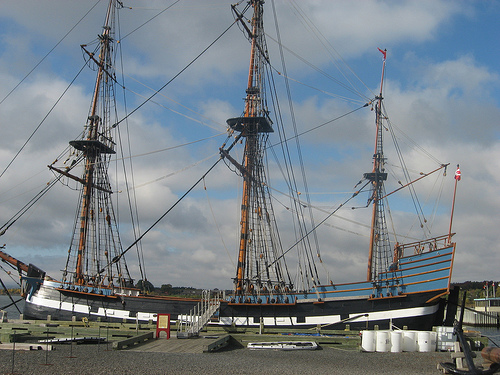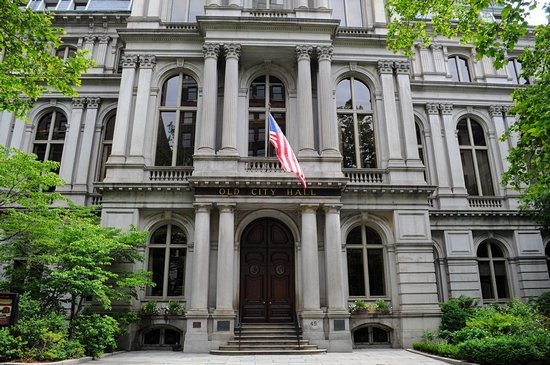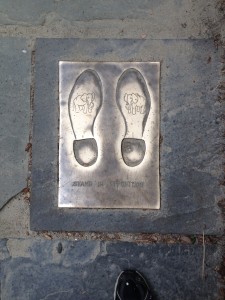More and more we see that discussions, any debate will soon end in some sort or rant or disagreement. Watching the TV “news” programs, one wonders how anyone can understand anything with everyone yelling at each other. No one listens anymore to anyone. We have our mind made up prior to the discussion and nothing, not even the truth, will change that opinion.
St. Paul is warning of the same type of argument in this particular passage from his letter to Titus. The passage stresses the need for Christian action and the danger of a particular kind of debate.
TITUS, my son, the saying is sure. I desire you to insist on these things, so that those who have believed in God may be careful to apply themselves to good deeds; these are excellent and profitable to men. But avoid stupid controversies, genealogies, dissensions, and quarrels over the law, for they are unprofitable and futile. As for a man who is factious, after admonishing him once or twice, have nothing more to do with him, knowing that such a person is perverted and sinful; he is self-condemned.
When I send Artemas or Tychicos to you, do your best to come to me at Nicopolis, for I have decided to spend the winter there. Do your best to speed Zenas the lawyer and Apollos on their way; see that they lack nothing. And let our people learn to apply themselves to good deeds, so as to help cases of urgent need, and not to be unfruitful.
All who are with me send greeting to you. Greet those who love us in the faith. Grace be with you all. Amen.
The word that St. Paul uses in English we translated to practice fine deeds and was used to describe a shopkeeper standing in front of his shop selling his wares to those who passed by. This phrase can mean two distinct things and St. Paul, always a master of language uses it to mean both.
St. Paul is using this passage to point out that Christians should only engage in respectable and useful trades. There were certain professions that the early church insisted one should quit before they were allowed to ask even for membership in the Church. There were, and still are I believe, certain professions that are incompatible with the life of a Christian. It was not easy to join the early Church, and much was required of those who wanted to join. A definite change of lifestyle, to a lifestyle more compatible with the life of a Christian, is what was called for.
However, there is a much wider meaning of this phrase that was more than likely what St. Paul was getting at in his choice of words. St. Paul believed that a Christian must practice good deeds that are helpful to all. He does not preach that works will lead you to salvation, what he is preaching is that as a Christian we should be, and must be, moved to the right deeds. Christianity is not static, and there needs to be movement and growth or, as St. James puts it, it is a dead faith!
The second part of this passage warns the readers against useless discussions. I often wonder what St. Paul would think is he turned on any of the national “news” programs on any given day or night.
The Greek philosophers spent their time on their fine-spun problems. The Jewish Rabbis spent their time building up imaginary genealogies for the Characters of the Old Testament. The Jewish Scribes spent endless hours discussing what could and could not be done on the Sabbath, and what and what was not unclean. It has been said that there is a danger that a person might think themselves religious because they discuss religious questions. It is far easier to discuss theological issues than to be kind and considerate and helpful at home, or efficient and diligent and honest at work. There is no virtue in sitting discussing profound theological questions when the simple tasks of the Christian life are waiting to be done. Such discussions can be nothing other than an evasion of Christian duties.
St. Paul was confident that the real task of the Christian was not in his words but his actions. I think he would agree that there is a place for discussion and learning, but any discussion that does not end is some action is largely a waste of time. It is the preacher’s responsibility to move people to action. To simply stand here and provide an entertaining and bland sermon is not preaching, that is shirking the responsibility of the preacher. The task of the preacher is to get the listener to move, to grow, to evolve, and to change; to take the words of Scripture into their hearts and apply them to their lives. The discussion is good, the action is better.
It is St. Paul’s advice that contentious and opinionative people should be avoided. Scripture calls this person a heretic. The Greek word is hairetikos. The verb hairein mean to choose, and hairesis means a party, (as in political party) or a school, or a sect. Originally the word carried no bad meaning. However, the wrong sense creeps in when a person erects his private opinion against all teaching, the agreement and the tradition of the Church.
Simply put, a heretic is a person who has decided that they are right, and everyone else is wrong. St. Paul’s warning is against the one who has made his ideas the test of all truth. We should always be careful of any opinion that separates us from the fellowship of our fellow believers. True faith does not divide, real faith unites.
St. Paul’s advice to us is that as Christians we should practice good deeds, I would add that we are required to practice good deeds, so that we can be independent but also so that we can help other who are in need. And this needs to be done without qualification and expecting nothing in return. Christians work not only to have enough for ourselves but that we have something to give away, and this is not just money this also includes or time.
All of St. Paul’s writings point us in the direction of grace, and it is that grace that we should strive for and that grace not only comes from hearing the word but then putting that word into action.












